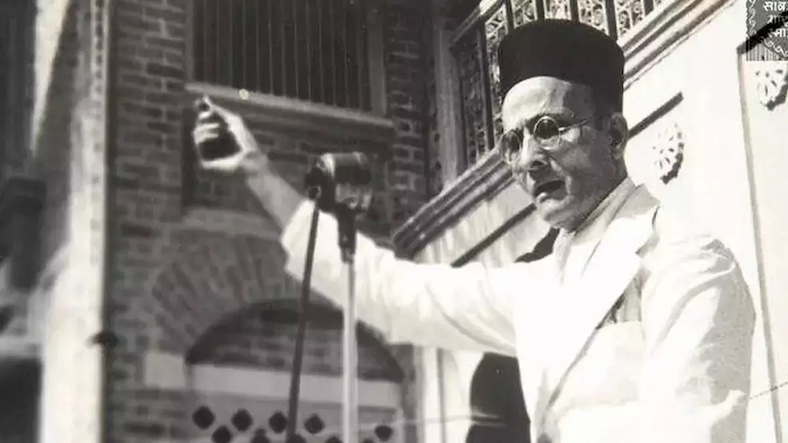Vinayak Damodar Savarkar (1883-1966) was an Indian nationalist, freedom fighter and political leader who played a significant role in India's struggle for independence from British colonial rule. He was a multifaceted personality known for his revolutionary activities, writings and contributions to the ideological landscape of India. However, it's important to note that Savarkar's views and actions are also controversial and have generated a wide range of opinions.
Here are some key aspects of Vinayak Damodar Savarkar's life and contributions:
- Early Life and Education: Vinayak Savarkar was born on May 28, 1883, in Bhagur, Maharashtra, India. He was a brilliant student and was greatly influenced by historical and revolutionary ideas from an early age.
- Revolutionary Activities: Savarkar was associated with the revolutionary movement against British colonial rule. He was involved in the planning of various protests and activities aimed at achieving India's independence.
- Arrest and Incarceration: In 1909, Savarkar was arrested in connection with the assassination of a British official and was sentenced to life imprisonment. He was imprisoned in the Cellular Jail in Andaman and Nicobar Islands, where he underwent rigorous punishment.
- Hindutva and Nationalism: Savarkar is known for coining the term "Hindutva," which refers to the cultural, social and political ethos of the Hindu community. He emphasized the need for unity among Hindus and believed that the idea of Hindutva could be a unifying force for the nation.
- Literary Contributions: Despite being imprisoned, Savarkar wrote extensively on various subjects, including history, politics and culture. His writings had a significant influence on the nationalist movement and the development of Hindutva ideology.
- Support for Social Reforms: Savarkar advocated for social reforms within the Hindu community, including the abolition of untouchability and the promotion of equal rights.
- Controversial Views: Savarkar's views on certain topics, including his stance on the use of violence for political ends and his ideas on Hindu nationalism, have been the subject of intense debate and controversy.
- Post-Independence Activities: After India gained independence, Savarkar continued to be active in politics. He founded the Hindu Mahasabha and was involved in discussions about the direction India should take post-independence.
- Legacy: Vinayak Damodar Savarkar remains a polarizing figure in Indian history. Some view him as a freedom fighter and ideologue who contributed to India's independence movement, while others criticize his controversial views and actions.
Savarkar's life and contributions continue to be discussed and debated in India's political and social discourse. He left a lasting impact on India's struggle for independence, as well as on the ideological currents that shape the country's identity and political landscape.
Thanks for reading the about this great personality on our peoples blog, for more such great people read our peoples blog articles.










